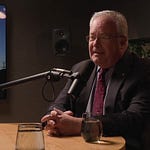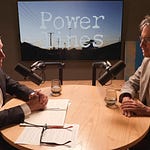Labor’s victory in Australia’s federal election is still being counted, both in scale and its place in history. With the party set to command more than 90 seats in the 150-member lower house, it is arguably the biggest win for Labor since Federation, 124 years ago. Barring a catastrophe, it is now set up to govern for at least the next six years.
This result elevates Prime Minister Anthony Albanese to the pantheon of party heroes and invests him with enormous power. But beneath the surface lies a more complex tale. Labor’s primary vote rose slightly but remains near historic lows, standing at 34.7 percent. That means nearly two out of three voters did not put a “1” in Labor’s box.
This extraordinary outcome reveals not so much a surge of support for the government as a catastrophic collapse in confidence in the Liberal brand. Labor’s huge majority was delivered on a wave of preferences from minor parties and independents.
Over the course of the last two federal elections, the dominant party in the Liberal–National coalition has lost 26 seats. Its combined primary vote is 32 percent—its lowest level since the end of the Second World War.
This has reduced the Coalition to a rump of about 42 seats (down from 58) and left the Liberal Party within it in ruins. It has lost its leader and its way.
As former President of the Senate Scott Ryan observes in his conversation with Powerlines, his party has been all but erased from the cities where two-thirds of Australians live. This defeat isn’t cyclical. It’s structural.
Australia’s electorate has fractured into thirds: between Labor, the Coalition, and anyone but the major parties. Ryan highlighted the rise of what pollsters call the “double haters” – voters who reject both Labor and Liberal. But in this election, those voters punished the Liberals in the distribution of their second preferences.
Ryan points to a long drift for the Liberals—starting in Melbourne, then spreading to Sydney and Brisbane. It’s not just a rejection of policies or candidates. It’s cultural and tonal. The party has failed to speak to women, to younger voters, to urban professionals. And instead of course-correcting, it kept tightening its ideological filter: narrowing its base and driving out dissent.
That has to change. And the path back isn’t in mimicking the grievance politics of America. Ryan is blunt:
“Donald Trump has been politically destructive for the centre-right movement every time there's been an election He effectively changed the result in Canada.”
That model will not work in Australia’s compulsory, preferential voting system. Instead, the party needs to return to first principles.
So what are those principles? For Ryan, the bedrock of liberal philosophy is intergenerational equity. Governments should not spend money they don't have and leave the bill to the next generation.
“It's a moral issue.”
He argues that the Coalition also needs to reframe its energy policy. This isn’t about denying climate change. It’s about opposing unaffordable, unreliable policy responses.
“The people have been promised cheaper power and stable power. Well, elections can decide policy, they don't decide physics.”
The public may not yet fully grasp what Net Zero entails, but they will when power bills spike and reliability collapses. The Coalition needs to be ready with a credible alternative.
Ryan thinks that leadership of the party is important—but that discipline matters more.
“You know stability in leadership is almost not dependent upon the leader. It's actually dependent upon the mindset of a party member.”
Ryan believes the Liberal Party's strength has always come from its broad ideological heritage, drawing from both classical liberalism and conservatism—what John Howard called “the custodian of two traditions.” That breadth has allowed it to speak to a wide cross-section of Australians. The party loses support, Ryan argues, when it strays too far from that balance.
To regain its footing, the Liberals must modernise their message without abandoning their foundations, tuning their policies and values to meet the real-world problems, aspirations, and perspectives of contemporary Australians.
This defeat could be the Liberal Party’s felix culpa—a fortunate fall. But only if it learns the right lessons. Otherwise, as Ryan warns:
“It can always get worse.”











Share this post